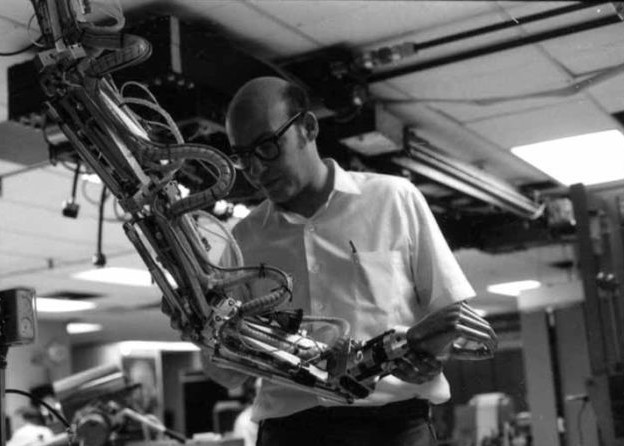Do you want a digital assistant 10,000 times more useful than Siri? A voice-activated universal remote that runs your life? I suppose the answer is “yes.”
Moore’s Law made supercomputers of yore affordable and portable for almost everyone, stealing them from the domain of superwealthy corporations and states and sliding them into our shirt pockets. Similarly, efforts are being made to create AI that acts as a voice-activated universal remote for our lives, anticipating and satisfying our needs. We may soon be able to enjoy the benefits of a “staff” the way our richer brethren do.
The thing is, most of the new technologies have not created more leisure. Will these tools, if realized, be the same? If they do actually reduce toil, what will we use the extra bandwidth for?
From Zoë Corbyn’s Guardian article about Dag Kittlaus’ attempts to create not Frankenstein but Igor:
Kittlaus is the co-founder and CEO of Viv, a three-year-old AI startup backed by $30m, including funds from Iconiq Capital, which helps manage the fortunes of Mark Zuckerberg and other wealthy tech executives. In a blocky office building in San Jose’s downtown, the company is working on what Kittlaus describes as a “global brain” – a new form of voice-controlled virtual personal assistant. With the odd flashes of personality, Viv will be able to perform thousands of tasks, and it won’t just be stuck in a phone but integrated into everything from fridges to cars. “Tell Viv what you want and it will orchestrate this massive network of services that will take care of it,” he says.
It is an ambitious project but Kittlaus isn’t without a track record. The last company he co-founded invented Siri, the original virtual assistant now standard in Apple products. Siri Inc was acquired by the tech giant for a reported $200m in 2010. The inclusion of the Siri software in the iPhone in 2011 introduced the world to a new way to interact with a mobile device. Google and Microsoft soon followed with their versions. More recently they have been joined by Amazon, with the Echo you can talk to, and Facebook, with its experimental virtual assistant, M.
But, Kittlaus says, all these virtual assistants he helped birth are limited in their capabilities. Enter Viv. “What happens when you have a system that is 10,000 times more capable?” he asks. “It will shift the economics of the internet.”•



